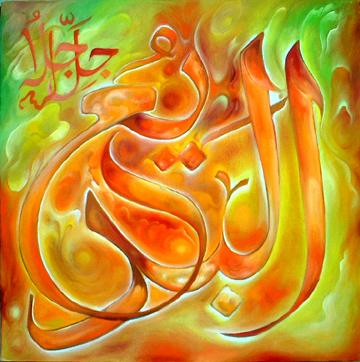Qesas Crimes and Diya
Islamic Law has an additional category of crimes that common law nations do not have. A Qesas crime is one of retaliation. If you commit a Qesas crime, the victim has a right to seek retribution and retaliation. The exact punishment for each Qesas crime is set forth in the Qur’an. If you are killed, then your family has a right to seek Qesas punishment from the murderer. Punishment can come in several forms and also may include "Diya." Diya is paid to the victim's family as part of punishment. Diya is an ancient form of restitution for the victim or his family. The family also may seek to have a public execution of the offender or the family may seek to pardon the offender. Traditional Qesas crimes include:
1. Murder (premeditated and non-premeditated).
2. Premeditated offences against human life, short of murder.
3. Murder by error.
4. Offences by error against humanity, short of murder.
Some reporters in the mass media have criticized the thought of "blood money" as barbaric. They labelled the practice as undemocratic and inhumane. Qesas crimes are based upon the criminological assumption of retribution. The concept of retribution was found in the first statutory "Code of Hammurabi" and in the Law of Moses in the form of "an eye for an eye." Muslims add to that saying "but it is better to forgive." Contemporary common law today still is filled with the assumptions of retribution. The United States federal code contains "mandatory minimum" sentences for drug dealing, and many states have fixed punishment for drugs and violence and using weapons. The United States justice system has adopted a retribution model which sets fixed punishments for each crime. The idea of retribution is fixed in the U.S. system of justice. Qesas crime is simple retribution: if one commits a crime he knows what the punishment will be.
Diya has its roots in Islamic Law and dates to the time of the Prophet Mohammad when there were many local families, tribes and clans. They were nomadic and travelled extensively. The Prophet was able to convince several tribes to take a monetary payment for damage to the clan or tribe. This practice grew and now is an acceptable solution to some Qesas crimes.
Today, the Diya is paid by the offender to the victim if he is alive. If the victim is dead, the money is paid to the victim's family or to the victim's tribe or clan. The assumption is that victims will be compensated for their loss. Under common law, the victim or family must sue the offender in a civil tort action for damages. Qesas law combines the process of criminal and civil hearings into one, just as the "civil law" is applied in many nations of the world. Qesas crimes are compensated as restitution under common law and civil law.
The Qesas crimes require compensation for each crime committed. Each nation sets the damage before the offence and the judge then fixes the proper Diya. If an offender is too poor to pay the Diya, the family of the offender is called upon first to make good the Diya for their kin. If the family is unable to pay, the community, clan or tribe may be required to pay. This concept is not found in common law or the civil law of most nations. It acts as a great incentive for family and community to teach responsible behaviour. What happens to the debt if the offender dies and has not paid it? Historically, it was passed on to the offender's heirs. Today, most nations terminate the debt if the offender left no inheritance.
One question that is often raised is "What happens if a victim takes the Diya without government approval?" The victim or family has committed a Tazir crime by accepting money which was not mandated by a judge: taking Diya must be carried out through proper governmental and judicial authority.
Another concept of Qesas crimes is the area of punishment. Each victim has the right to ask for retaliation and, historically, the person's family would carry out that punishment. Modern Islamic law now requires the government to carry out the Qesas punishment. Historically, some grieving family member may have tortured the offender in the process of punishment. Now the government is the independent party that administers the punishment, because torture and extended pain is contrary to Islamic teachings and Shar'iah Law.
Posted on 2/23/2005 11:09:58 PM




 Uncle Q...
Uncle Q...
Uncle Q...












 yahaan koi game tu nahi ho rahi hai.
yahaan koi game tu nahi ho rahi hai.

 )
)

 .. theek
.. theek

 I think arabic words ki chain thi yeh aap ne english/urdu bana di, Heaven should be 'Janna', and Namaz should be 'Salat'.
I think arabic words ki chain thi yeh aap ne english/urdu bana di, Heaven should be 'Janna', and Namaz should be 'Salat'. galti ho dai ab to
galti ho dai ab to

 i'll b carefull next time..
i'll b carefull next time..


 .. aur bht kuch hai kehnay ko ..
.. aur bht kuch hai kehnay ko ..

